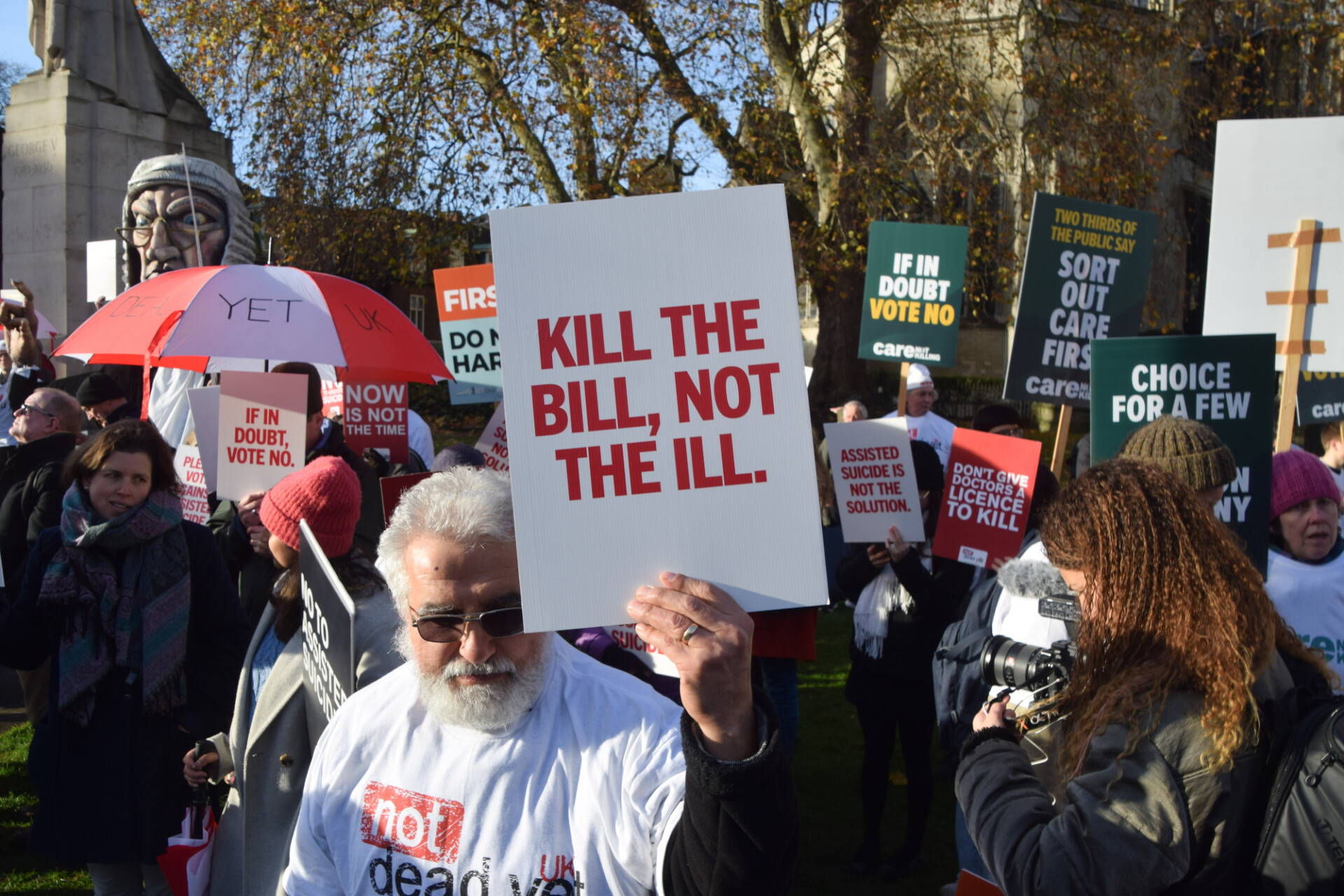Last week in Parliament, MPs voted to legalise euthanasia. Kim Leadbeater’s Terminally Ill Adults (End of Life) Bill passed its Second Reading by 55 votes. With 59% of Labour MPs and 89% of Lib Dems in favour, it is overwhelmingly likely that the legislation will sail through its remaining stages with a minimum of difficulty and indeed scrutiny.
So when it does become law, should those who oppose it simply accept the situation?
No, because there are several things they can do to continue the fight. Firstly, they can refuse to comply with the language policing of this issue. The most telling moment of last week’s debate was when Danny Kruger’s speech against the Bill was interrupted by a Labour MP on a spurious point of order. He mustn’t use the term “assisted suicide”, she demanded, because it was “incorrect”. Kruger politely, but firmly, declined to be censored. Some people might find his plain words offensive, but others might be offended by the very idea of state-sanctioned death.
Secondly, MPs opposed to assisted killing could seek to introduce a Right to Palliative Care Bill and challenge Keir Starmer to make as much room for that in the Parliamentary timetable as he has for the Leadbeater Bill. After all, if this really is all about patient choice and dignity how could he object?
Thirdly, Parliament should be relentless in monitoring the implementation of euthanasia in the UK. With their power to summon witnesses to public hearings, the relevant select committees are ideally placed to shine a light on what’s about to happen. Of course, with its overwhelming majority, we should expect Labour to do what it can to keep us in the dark.
The last best hope for adequate scrutiny therefore lies with the Official Opposition. Last week, four out of five Tory MPs voted against the Leadbeater Bill. This may be a free vote issue, but when the legislation passes, ministers will be responsible for its implementation and the Conservative front bench for holding them to account. At the very least, an annual Opposition Day Debate should be used to ensure that Starmer and his colleagues have to answer for what they’ve enabled.
With Labour sinking in the polls, the prospect of a Conservative return to power doesn’t seem so distant. Therefore Tory policy announcements matter. Taking inspiration from the Cass Review of gender identity services for children and young people, Kemi Badenoch could commit now to an independent review of euthanasia services in the NHS.
The best guarantee that the UK doesn’t go down the same road as Canada and Oregon is the certain knowledge among euthanasia practitioners that a change of government will mean tougher regulation. Most clarifying of all would be a commitment to ensure that those guilty of malpractice face disciplinary action — and, if the law has been broken, criminal prosecution. Practitioners in this country should not be able to count on Canadian levels of impunity.
Finally, Conservatives need not accept Left-wing ideas of inevitable “progress”. There should be nothing irreversible about a bad law. If the safeguards promised by the Leadbeater Bill are not delivered, then a future government must repeal it.











Join the discussion
Join like minded readers that support our journalism by becoming a paid subscriber
To join the discussion in the comments, become a paid subscriber.
Join like minded readers that support our journalism, read unlimited articles and enjoy other subscriber-only benefits.
Subscribe